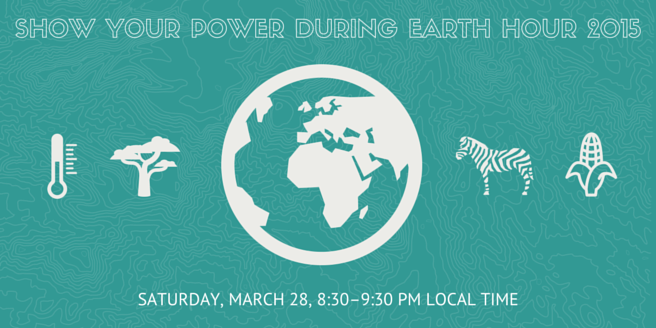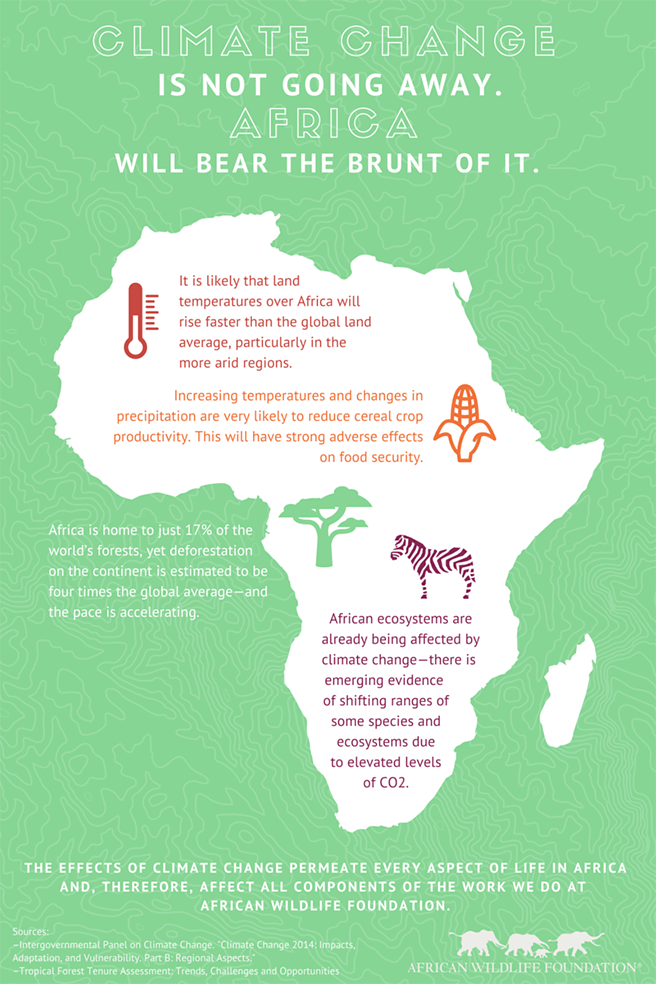Changing Climate Change

Africa is anticipated to experience more than its fair share of climate change’s negative impacts, despite consuming just a fraction of the world’s fossil fuels.
Given its size, vast natural resources and unique weather patterns, Africa is particularly vulnerable to rising temperatures. The effects of rapid deforestation and elevated carbon dioxide levels are already having a noticeably detrimental impact on quality of life for all of the continent’s inhabitants.
On Saturday, March 28, people across the globe will show their commitment to mitigating the effects of climate change by celebrating Earth Hour. By turning off all non-essential lights from 8:30-9:30 p.m. local time, participants demonstrate the ability we each have to play our own part, large or small, in helping conserve this wonderful planet we all call home.
But the progress made during Earth Hour doesn’t have to end after those 60 minutes are up. In fact, we at AWF would love to see the movement continue to gain momentum all year long—we’ll certainly be spending the next 365 days (and the next 365 after that) working hard to find solutions to the problems climate change poses for Africa’s communities, flora and fauna.
Check out the graphic below for a clearer understanding of what we’re up against and why climate change mitigation is a key component of successful conservation. We hope you’ll not only be inspired to add your support to this year’s Earth Hour movement, but that you’ll join us in doing whatever you can, day after day, to reduce the impact climate change will have on the communities and wildlife of Africa.
